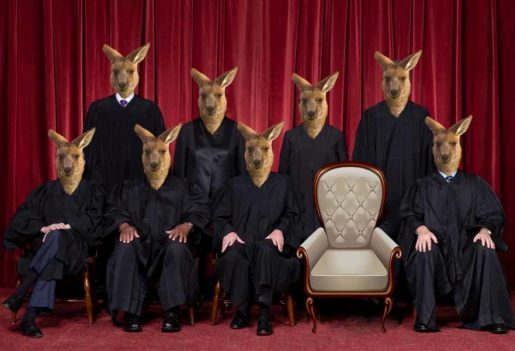

G 1/21 is likely to be just another pro forma rubber-stamping exercise.
This time the story is connected to the "new normal" at the EPO and plans of the management to impose oral proceedings by videoconference, in particular in circumstances where the parties don't consent to the use of such a procedure.
epo.org link) and the crucial referral question reads as follows:
"Is the conduct of oral proceedings in the form of a videoconference compatible with the right to oral proceedings as enshrined in Article 116(1) EPC if not all of the parties to the proceedings have given their consent to the conduct of oral proceedings in the form of a videoconference?"
"Even the normally censorious Rose from AstraZeneca has been allowing EPO-critical comments to filter through."In particular, IPKat recognised that the "hasty scheduling of the oral proceedings with limited time for third parties to comment, and (…) the potential conflicts of the appointed members of the Enlarged Board" had given rise to a significant amount of legitimate public criticism.
Even the normally censorious Rose from AstraZeneca has been allowing EPO-critical comments to filter through.
Much of the criticism in the comments following the articles has been directed at Carl Josefsson.
"It should be noted that the decision adopted by the EBA in such a case is a final decision which is not subject to review by any further instance."In his capacity as President of the Boards of Appeal, Josefsson was directly involved in the introduction of the disputed amendments to the Rules of Procedure. His involvement in the amendment procedure is foreseen under Rule 12c(2) EPC (warning: epo.org link).
It seems that Josefsson is now insisting on playing a key role as Chairman of the Enlarged Board in deciding whether or not the amendments which he himself proposed are compatible with the European Patent Convention.
It should be noted that the decision adopted by the EBA in such a case is a final decision which is not subject to review by any further instance.
As things stand, the procedure in G 1/21 is unlikely to be anything more than another pro forma rubber-stamping exercise.
"But even if the outcome seems like a foregone conclusion at this stage, the case has generated a significant amount of public interest and controversy and will, in all likelihood, continue to do so in the lead-up to the hearing scheduled to take place on 28 May."The only useful purpose which it is likely to serve is to provide a further "exhibit" in the mounting pile of evidence of a serious erosion of the rule of law at the EPO and a failure by the organisation's main judicial body to comply with even the most elementary standards of judicial independence and procedural fairness.
But even if the outcome seems like a foregone conclusion at this stage, the case has generated a significant amount of public interest and controversy and will, in all likelihood, continue to do so in the lead-up to the hearing scheduled to take place on 28 May.
In the next part we will present the composition of the judicial panel entrusted with deciding the controversial referral case G 1/21. ⬆